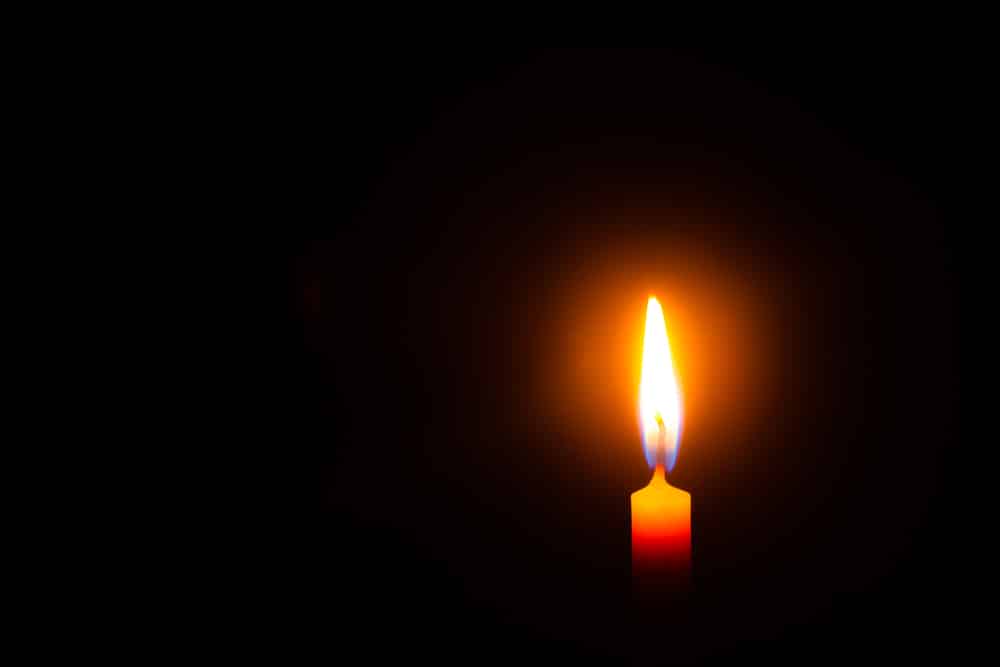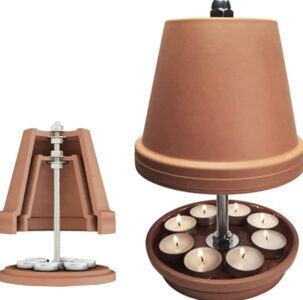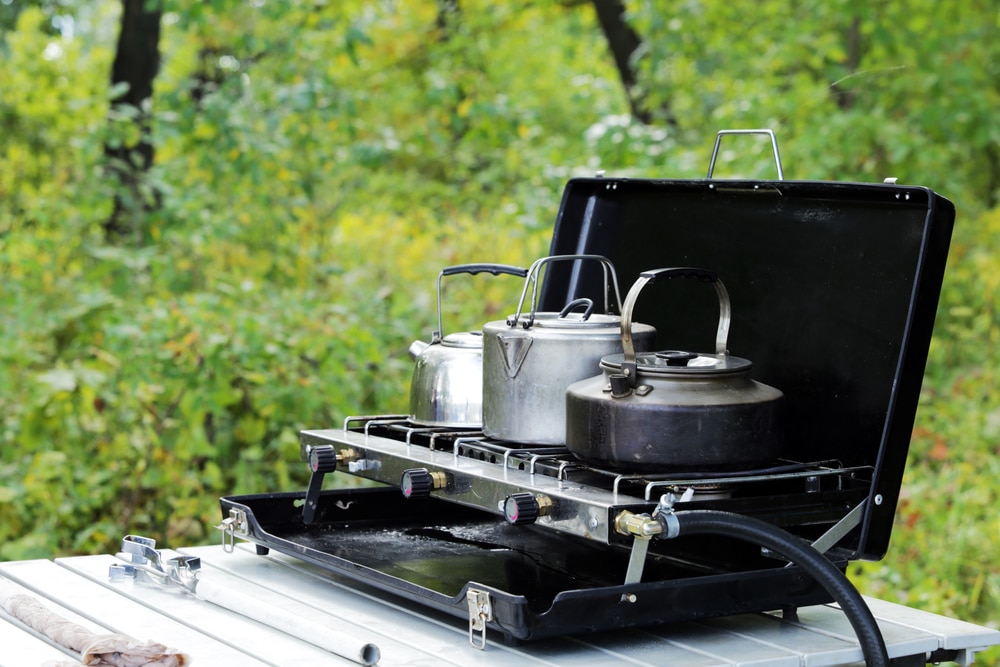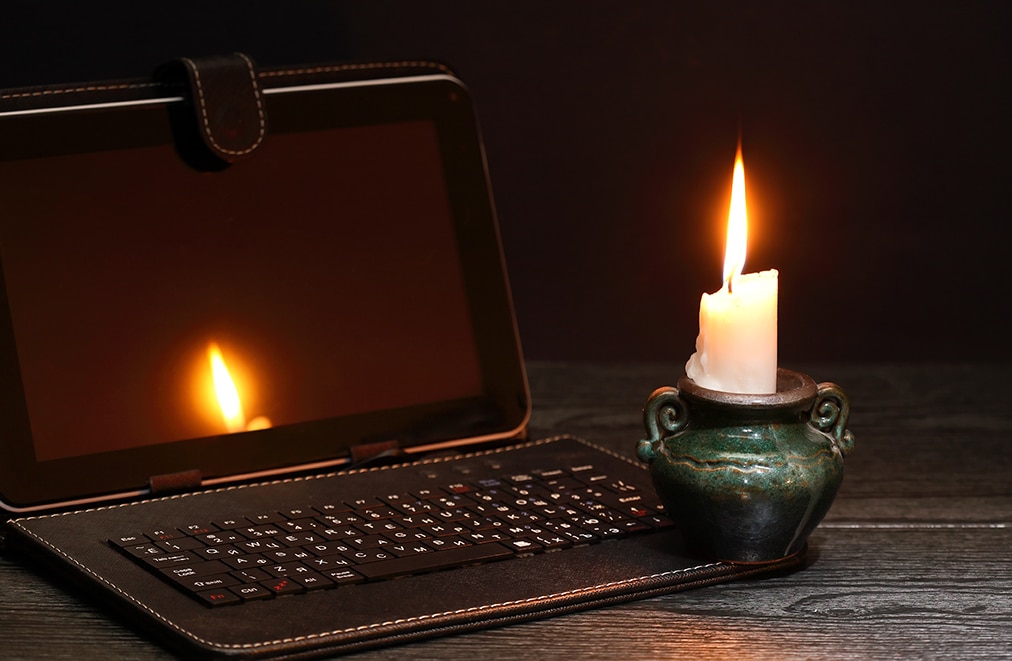![]()
![]()
Jasmine Birtles
11th Sep 2025
Reading Time: 5 minutes
As the world feels increasingly unstable, it’s an important reminder that we need to be able to look after ourselves in the event of a power cut or severe weather cutting us off for a few days. There are also things to consider like interruptions to food supply chains with unease in Europe. We’re not here to cause panic: but being prepared to look after yourself and your family for a few days is something that most countries prepare their citizens for.
Prepare an emergency kit with these tips to ensure you stay safe until help arrives (or the power returns).
Get a Generator
We rely so much on electricity for our day-to-day lives that a power cut caused by severe storms or even simply a maintenance outage can disrupt everything.

 A battery powered generator is ideal to have on hand in case you’re out of power for more than a couple of hours. Look for one that can be charged in different ways, such as from your car, solar power, and a standard socket. Bluetti has a wide range of generators from small to extra-large, so there’s one to suit every budget. We particularly like the AC50B Portable Power Station, which is 700W of power with six different ways to recharge. It weighs just under 15lbs so is quite easy to move around, and has a lifting power of 1000W. You can also opt to add on additional solar panels for faster charging and a spare battery for extended life. At the time of writing, it’s on sale for £269 (RRP £349).
A battery powered generator is ideal to have on hand in case you’re out of power for more than a couple of hours. Look for one that can be charged in different ways, such as from your car, solar power, and a standard socket. Bluetti has a wide range of generators from small to extra-large, so there’s one to suit every budget. We particularly like the AC50B Portable Power Station, which is 700W of power with six different ways to recharge. It weighs just under 15lbs so is quite easy to move around, and has a lifting power of 1000W. You can also opt to add on additional solar panels for faster charging and a spare battery for extended life. At the time of writing, it’s on sale for £269 (RRP £349).
If you rely on medical kit at home that needs power, speak to local charities or your local authority to find out if you can get financial help to buy a larger battery-powered generator. You should also register with your power company and local authority as a vulnerable person to make sure they know to check on your home as a priority in the case of an incident.
Power Banks
If a generator is out of your reach, consider some power banks instead. These will provide enough power to keep devices like mobile phones charged up for longer, or even run a laptop in a power cut for a little longer.
Look for power banks that have several connector types, such as USB-A, USB-B, and USB-C. This ensures you can charge most things from them. The only trouble with power banks is that you need to remember to periodically recharge them! If you’re forgetful, look for solar-powered power banks that you can permanently leave on a windowsill. This ensures they will always have some power even if you forget to charge them.
If You Work From Home
Invest in a battery-powered surge protector. This gives you time to save your work on your desktop computer in a power cut before shutting it down, as well as prevent power surges from damaging your kit.
Make a Plan
Being prepared for likely eventualities, such as a local flood cutting you off or a storm taking out your power, is important.
Make sure everyone in your family know where important things are, like your fire extinguisher and emergency kit.
Keep all of your important documents in a fireproof, waterproof box or case. Put them in a safe place, make sure you know where they are but also tell a friend or family member outside of the home so that they can locate important information if you are incapacitated or unable to access the documents you need (such as if you need to go to hospital).
Lighting


The first thing you need in a power cut or emergency is light so you can see where you’re going. Obviously it’s important to have:
- Candles – pillar candles last longest while tea lights are cheap
- Matches – store in a waterproof box
- A gas lighter – in case matches fail
- A robust torch
- A stash of batteries for the torch
Keep them in a waterproof box somewhere that’s easy to access.
If you want more than the bare minimum, such as if you live in a rural area and know it could take several days to get your power back after a storm, consider adding more options.
Wind-Up Torch

 While battery-powered torches are convenient, a wind-up torch will always work even when there are no batteries to hand. The light isn’t as strong as some battery torches, but it’s enough to get you by. Some come with solar panels on the side, too.
While battery-powered torches are convenient, a wind-up torch will always work even when there are no batteries to hand. The light isn’t as strong as some battery torches, but it’s enough to get you by. Some come with solar panels on the side, too.
Many wind-up torches also act as emergency power banks, with USB connectors. They may also have a radio built in, which is ideal for tuning in to hear updates as your TV won’t work without power!
Camping Lanterns

 A battery powered camping lantern or two can provide a broader spread of light that is safer to light a whole room than a bunch of candles. Many are multifunctional, offering a torch position as well as an extended lantern position to diffuse light further.
A battery powered camping lantern or two can provide a broader spread of light that is safer to light a whole room than a bunch of candles. Many are multifunctional, offering a torch position as well as an extended lantern position to diffuse light further.
Warmth
Keeping warm is essential to looking after yourself in an emergency, especially as power cuts tend to happen during adverse winter weather!
Make sure you have blankets you can layer up to stay warm, and a big jumper to put on, too.

 Candles will add a surprising amount of heat to the room, but you can go one step further and have a terracotta candle heater on hand. This uses tealights to warm up the clay pots, which hold the heat to keep the area warm for longer.
Candles will add a surprising amount of heat to the room, but you can go one step further and have a terracotta candle heater on hand. This uses tealights to warm up the clay pots, which hold the heat to keep the area warm for longer.
Cooking


The first thing you tend to miss when the power has been out for a bit is a nice hot cup of tea – or hot anything really – so be prepared with some non-electric cooking items. Check out the camping section of outdoor stores for some great bargains and kit.
A camping stove can be a literal lifesaver. The mini portable ones are decent enough to make a cup of tea or boil some water to add to a Pot Noodle, but slightly larger ones will mean you can cook a whole hot meal with ease.
Emergency Food and Kit
Finally, make sure you pack a few days’ worth of supplies in a waterproof box that’s easy to access, such as under the bed or in a kitchen cupboard.
Make sure you include food with a long shelf life like:
- Powdered milk
- Snack bars
- Tinned veggies
- Tinned rice pudding (can be eaten cold in an emergency)
- Baked beans (can be eaten cold)
- Chocolate
- Biscuits
- Hot chocolate
- Instant coffee or teabags
- Several litres of bottled water
- Enough pet food for your pets for a couple of days
It’s helpful to also have household supplies on hand too, like:
- A roll of bin bags
- Paper plates (you can’t wash up if your water supply is affected!)
- Reusable plastic cutlery
- Kitchen roll
- A first aid kit including painkillers, bandages, and plasters
- An all-purpose fire extinguisher


Sign Up – Newsletter

